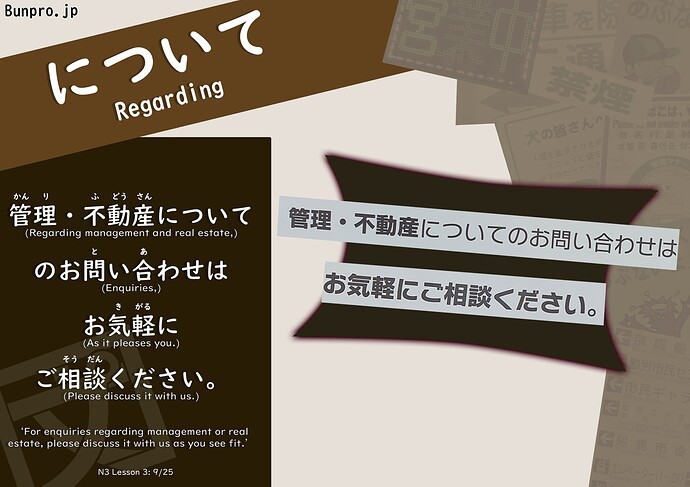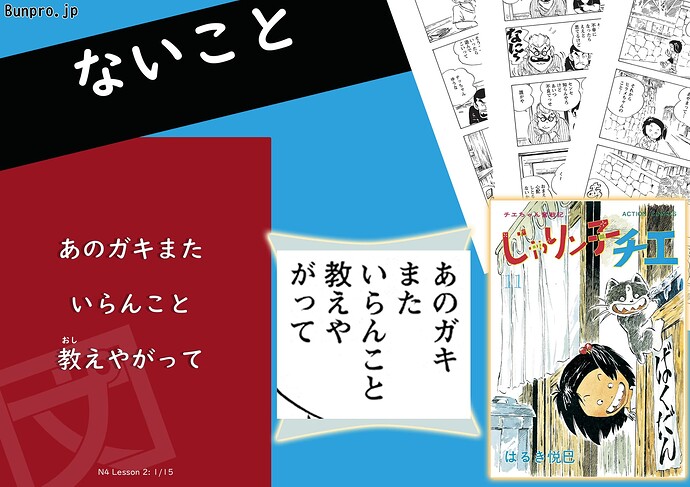Summary
Literal: Please feel free to consult [with us] on inquiries regarding management and real estate.
Natural: Please feel free to inquire within about property management and real estate.
Notes – It’s hard to use “feel free” and still keep a very formal tone (inquire, regarding, consult). My next choice was “do not hesitate”, but that felt like too many words. I’m curious to see what others come up with.
– I clipped the natural translation to just “inquire” because “consult to inquire” sounds redundant in English.






